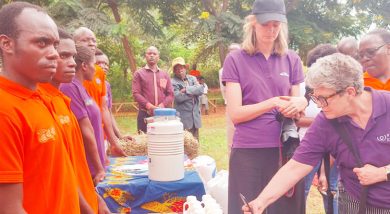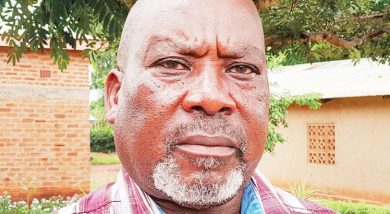APM proposed federalism in 2006
In an interesting turn to the federalism debate, The Nation has established that President Peter Mutharika publicly proposed federalism and proportional representation in the country eight years ago as “two possible ways of addressing concerns about regional marginalisation”.
This is in sharp contrast to public statements the President has been making, a case in point being one at Mzuzu Stadium upper ground in August where he said political and religious leaders should not divide the country with calls for federalism.

Said the President in Mzuzu: “Let me reiterate my belief in one nation, one Malawi. Some people want to break the country.”
The President also made similar sentiments when he addressed a development rally in Balaka this week.
Ironically, while presenting his remarks at the National Constitutional Review Conference at Capital Hotel in Lilongwe, held from 28 to 31 March 2006 titled Towards a More Manageable Constitution, Mutharika—then professor at Washington University School of Law in the United States of America (USA)—proposed federalism while addressing the issue of national unity.
This is the paper that the President was referring to during a press briefing at Sanjika Palace in Blantyre on his return from the United Nations early this month when—asked for his views on whether Malawi should adopt a federal system—Mutharika said: “I will not give my views at the moment”.
However, the President was quick to add that “if you are looking for [my personal] views, check with the Law Commission, they have that paper”.
In the paper, before discussing federalism, Mutharika asked Malawians to consider looking at the idea of proportional representation which, he said, “has worked quite well” in countries such as Namibia, Mauritius and South Africa.
Making a case on the federal system of government, Mutharika used the Nigerian example, saying: “Another and perhaps more radical response [are] to simply abolish the three regions and create the district as the basic administrative unit.”
He underlined that Nigeria successfully resolved the problems that were created by the existence of its three regions at the time of independence in 1960 into what are now 36 States and one federal territory.
Mutharika also persuasively concluded that “while the initial decision to abolish the regions led to war, Nigeria is now a much more unified and stable country”.
However, despite Mutharika’s seemingly conflicting statements, his press secretary Frederick Ndala, yesterday maintained that the President still holds the views he expressed in 2006—suggesting that his position on the matter has not evolved.
Commenting yesterday on the seemingly conflicting stance of Mutharika the international legal scholar eight years ago and Mutharika the State President as well as politician, Joseph Chunga, lecturer of political science at Chancellor College, said although the President proposed federalism in the past, he would not be comfortable to stand up for it now given the power he has as Head of State.
“A federal system of government would not favour him much control of the State that he enjoys in a unitary State,” he said.
Chunga added that if the President’s opinion on federalism has not changed, then it is very unlikely that his party would go against it.
“I don’t expect the Information Minister or any government official to go against the idea when the President was for it. But still more, we have to ask: why was the President referring to a document that has views that he is now against? It does not help matters at all,” he said.
But political commentator Henry Chingaipe said yesterday that the President and his government already pronounced their willingness for a robust debate on the question of federalism in Malawi.
He said: “The Minister of Information is on record to have indicated that they would ask the Public Affairs Committee [PAC] and the Catholic Commission for Justice and Peace [CCJP] to facilitate the debate.”
“Since the President made his earlier views known on the subject through his paper made at a constitutional review many years ago, it is good that he and his government decided that the debate should be facilitated by independent organisations,” he said.
Asked on the President’s public statements that “some people want to break Malawi” with some chiefs openly speaking against federalism, Chingaipe said his “understanding of the statements uttered by the President and his aides is that they are concerned about the question of secession”.
On Wednesday, PAC said it would hold a National Stakeholders Forum on Inclusivity and Federalism from November 24 to 25.





